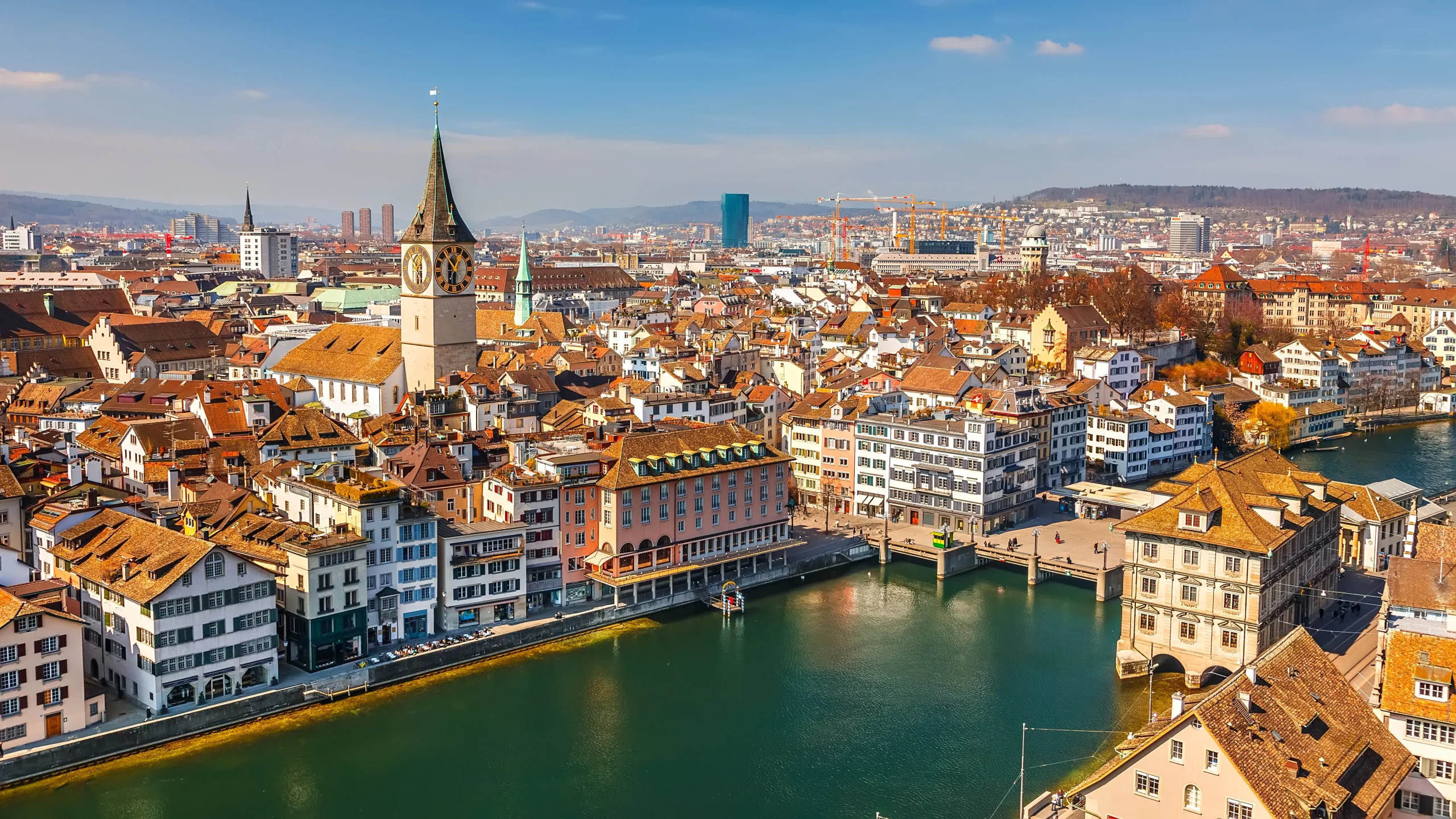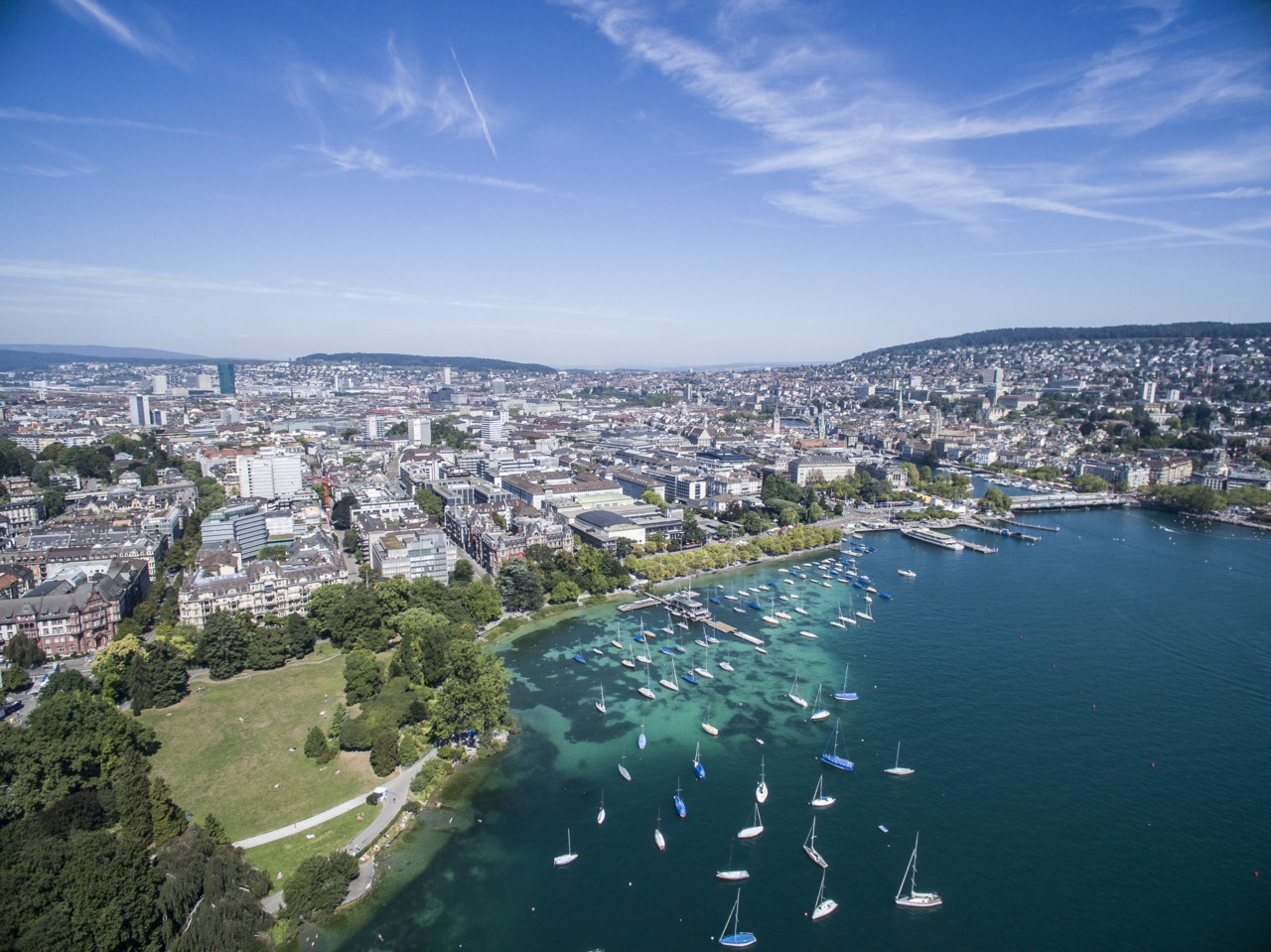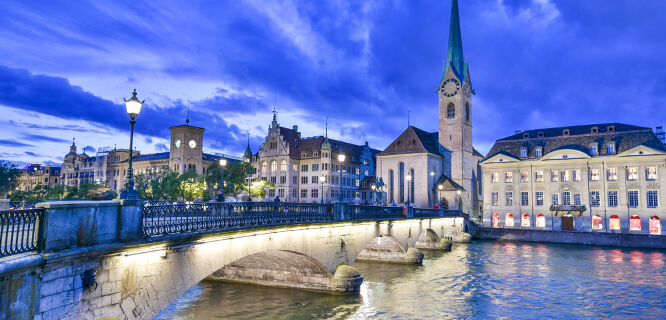When it comes to urban cleanliness and sustainability, Zurich consistently ranks among the top cities in the world. The Clean City Index, a comprehensive assessment of a city’s environmental performance, has consistently placed Zurich near the top of the list. In the latest edition of the index, Zurich secured the third spot, solidifying its reputation as a global leader in sustainable urban development.
This recognition is a testament to Zurich’s unwavering commitment to creating a clean, green, and livable city for its residents and visitors. The city’s dedication to sustainable practices, efficient waste management, and environmental preservation has earned it a well-deserved place among the world’s most eco-friendly urban centers. Zurich’s consistent high rankings in the Clean City Index serve as a powerful reminder that a city can thrive while also prioritizing the well-being of its citizens and the natural environment.
As we delve deeper into Zurich’s journey towards urban cleanliness and sustainability, it becomes clear that the city’s success is the pwvip4d login alternatif result of a multifaceted approach that encompasses everything from waste management to renewable energy. Zurich’s holistic approach to sustainability has set a benchmark for cities around the world, inspiring them to emulate its best practices and strive for a more sustainable future.
Contents
- 1 Zurich’s waste management system
- 2 Sustainable transportation
- 3 Green spaces and parks in the city
- 4 Zurich’s commitment to renewable energy
- 5 Sustainable architecture and urban planning
- 6 Initiatives promoting cleanliness and sustainability
- 7 Challenges and future prospects for Zurich’s urban cleanliness and sustainability
- 8 Conclusion: Lessons from Zurich for other cities
Zurich’s waste management system
The most important reason of getting good in the clean city index was efficient and innovative waste management system. The city has long understood the necessity of minimizing waste and recycling in a plan that is far-sighted.
Central to Zurich’s waste management system is a well-established infrastructure of recycling centres and containers designed for the convenient disposal of household refuse. The city has made significant investments in recycling that facilities like these state of the art processing plant which can process a wide variety of recyclable materials including paper, plastic and E-waste as well as organics. It is thanks to this very broad approach that Switzerland can achieve some superb recycling rates, regularly seeing over 50%!
However, the city of Zurich is more than just a commitment to recycling. The city has also worked with private businesses to develop waste reduction strategies, including promoting composting and behaviors that help residents adopt a more sustainable way of life. Switzerland %27pay-as-you-throw%27 scheme, where residents are charged according to the amount of refuse they create, has seen people reduce disposable rubbish and increase recycling.
The city had been lauded earlier for its waste management initiatives. The city has earned recognition from international organizations, such as the European Commission’s European Green Capital Award for its cutting-edge waste reduction and recycling efforts. Such an achievement is also a shining example of Switzerland’s commitment to the idea that urban lifestyles can be made to generate less pollution while being sustainable over time, and could serve as perfect motivation for many such other cities across the world.

Sustainable transportation
From their waste management system to the city’s comprehensive sustainable transportation (more on that later), Switzerland is committed and successful at such efforts. And with a focus on carbon reduction and promoting sustainable transportation, Switzerland has long invested in an extensive tram system as well as excellent cycling facilities.
Melbourne’s public transportation system is hailed as one of the best around, and for good reason – a sprawling network aims to cover every inch of town with accessible trams, buses, and trains. Zurich’s public transportation is known to be efficient and reliable, but many do not realize that it is also very easy to use as well – there are buses on a constant basis at various locations around the city; tickets can be bought easily too. This has encouraged residents to keep their cars parked at home and have chosen for alternate more environmental options, all in keeping with the city’s overall envirnonmentalist goal.
But Zurich is just getting started with sustainable transportation. A significant amount of investment has gone into creating a complete bicycle infrastructure system in the city which includes a full network of separated bike lanes and routes allowing residents to safely commute by bicycle. City bike initiatives and traffic-calming policies have also played a part in changing behaviour, encouraging more people to cycle their way through Zurich.
ZURICH – Zurich has already made great strides in pushing for sustainable transportation. In this city we are experiencing high reduction in car usage as people continue to seek public transportation or cycle around. This has, in turn, reduced carbon emissions and helped clear the air – making Switzerland an even more liveable city. Other cities throughout the world can learn from Zurich, who has shown that it is possible to build an urban environment without sacrificing sustainability.
Green spaces and parks in the city
In particular, the scope of parks and green areas also reflects Switzerland’s efforts to become more sustainable. ZURICH, Switzerland – Zurich is a very beautiful city with a strong sense of preservation in mind regarding their natural surroundings.
UetlibergWith13Green spacesZurich has some of the best green spaces outoron this list and one that standsoutfromthe rest is Uetliberg. This urban escape is close enough to the city that gives it’s inhabitants and visitors a chance for some peace from life in paints. Zurich is home to an incredible number of parks, gardens and nature reserves that provide numerous recreational opportunities as well as environmental benefits the Uetliberg one example of this green streak running through its society.
Aside from the Uetliberg,Zurich is also surrounded by many green spaces such as Bahnhofstrasse which lined with trees and serve as Switzerland’s main gift hunting district, And Limmatquai a beautiful walkway near river limmit. The city’s green spaces do more than just beautify the area, but they are vital for maintaining a healthy local climate, cleaner air and animal species to flourish once in their own habitats.
The reduction in number one comes from Zurich’s long-term policy to invest not just in its physical infrastructure but also in green spaces and parks, a city that shows an aesthetic feel by investment is nothing other than an indicator towards sustainability. By preserving and growing its natural areas, Switzerland is better able to meet the physical needs of providing clean air, fresh water, safe food and recreation opportunities for every resident while also enhancing overall ecosystem health according. This combined perspective in city planning has made Zurich a light to the world on sustainability, encouraging different urban communities elsewhere to emulate its example.

Zurich’s commitment to renewable energy
Sustainability in Zurich crosses over into the energy sector, too; The city is undoubtedly serious about this matter. Understandably, Switzerland is taking drastic steps to reduce the amount of carbon it spews into our atmosphere recognizing that securing a brighter future requires shedding old habits and doing everything in its power to become a city without emissions by 2040.
CARRIZALESAlfonso CarrizalesAt the core of Zurich’s renewables strategy is solar power. As this shows, the city has spent its fair share on fitting solar panels to public buildings but also calls for private homeowners and businesses alike take up home heating services. Solar energy capacity in the city has boomed, and Switzerland now lays claim to one of Europe’s highest rates of solar power production per head.
But across the energy spectrum, Zurich has taken a broad-based approach to going green beyond simply putting up solar panels. The city has also invested in other clean sources of electricity, such as hydro- and geothermal power to further reduce its carbon emissions. The district heating system in Switzerland, which uses the waste heat from industrial processes and electricity generation to provide energy for both homes and businesses (as shown here), offers a glimpse of how forward-thinking this city is when it comes to delivering sustainable power.
The home of Zurich’s renewable energy measures was among the cities that have seen considerable impact. This has resulted in a steep decline of greenhouse gas emissions with the city boasting one of the lowest carbon footprint per capita worldwide. This in turn has resulted in better air quality and a healthier, more liveable urban environment for Zurich residents. Zurich’s achievement in shifting to renewable energy has been honored by the International Energy Agency and emulated by cities around the globe.
Sustainable architecture and urban planning
Zurich’s commitment to sustainability extends beyond its infrastructure and policies; it is also evident in the city’s approach to architecture and urban planning. Recognizing the importance of creating a built environment that is both functional and environmentally responsible, Zurich has embraced a holistic approach to sustainable design, incorporating green building practices and innovative urban planning strategies into its development projects.
One of the hallmarks of Zurich’s sustainable architecture is its emphasis on energy efficiency. The city has implemented strict building codes that require new construction projects to meet stringent energy-saving standards, such as the use of high-performance insulation, efficient heating and cooling systems, and renewable energy sources. This has resulted in a cityscape dotted with buildings that are not only visually appealing but also highly energy-efficient, reducing the city’s overall carbon footprint.
But Zurich’s commitment to sustainable architecture goes beyond just energy efficiency. The city has also embraced the use of sustainable materials, such as locally sourced wood and recycled concrete, in its construction projects. This not only reduces the environmental impact of the construction process but also supports the local economy and promotes the use of renewable resources.
In addition to its focus on sustainable architecture, Zurich has also taken a proactive approach to urban planning, incorporating green spaces, pedestrian-friendly design, and mixed-use development into its city planning strategies. This holistic approach to urban design has resulted in a city that is not only aesthetically pleasing but also highly livable, with ample opportunities for recreation, transportation, and community engagement.
Zurich’s success in sustainable architecture and urban planning has earned it recognition from international organizations, such as the World Green Building Council, and has inspired other cities around the world to emulate its best practices. As a model of sustainable development, Zurich continues to set the standard for what is possible when a city embraces a comprehensive approach to environmental responsibility and urban design.
Initiatives promoting cleanliness and sustainability
Zurich’s commitment to urban cleanliness and sustainability is not just limited to its infrastructure and policies; it is also evident in the numerous initiatives and programs that the city has implemented to engage its residents and foster a culture of environmental stewardship.
One of the standout initiatives in Zurich is the city’s “Clean Up Day,” an annual event that brings together residents, businesses, and community organizations to clean up public spaces and promote environmental awareness. During this event, volunteers gather to collect litter, plant trees, and engage in other activities that help to keep Zurich’s streets, parks, and waterways clean and well-maintained.
Another notable initiative is Zurich’s “Zero Waste” program, which aims to reduce the amount of waste generated by the city’s residents and businesses. Through educational campaigns, incentives, and targeted waste reduction strategies, the program has been successful in encouraging Zurich’s residents to adopt more sustainable waste management practices, such as composting and recycling.
In addition to these city-led initiatives, Zurich is also home to a vibrant community of grassroots organizations and non-profit groups that are dedicated to promoting sustainability and environmental stewardship. These groups organize a wide range of events and activities, from urban gardening workshops to beach cleanups, that engage Zurich’s residents and foster a sense of collective responsibility for the city’s environmental well-being.
Zurich’s commitment to cleanliness and sustainability is not just limited to these organized initiatives; it is also evident in the everyday actions of the city’s residents. Zurich’s citizens are known for their diligence in recycling, their use of public transportation, and their active participation in community-based environmental initiatives. This culture of environmental responsibility has helped to reinforce Zurich’s reputation as a model of urban cleanliness and sustainability, inspiring other cities to follow in its footsteps.

Challenges and future prospects for Zurich’s urban cleanliness and sustainability
While Zurich’s success in urban cleanliness and sustainability is undeniable, the city is not without its challenges. As a growing urban center, Zurich faces a number of pressing issues, from the need to accommodate a growing population to the challenge of maintaining its high standards of environmental stewardship.
One of the key challenges facing Zurich is the need to balance its commitment to sustainability with the demands of economic growth and development. As the city continues to attract new residents and businesses, there is a risk that the pressure to expand and build could come at the expense of the city’s environmental goals. Switzerland’s leaders are keenly aware of this challenge and have implemented a range of policies and initiatives to ensure that the city’s development remains sustainable and eco-friendly.
Another challenge facing Zurich is the need to adapt to the impacts of climate change. As the effects of global warming become more pronounced, the city will need to invest in infrastructure and strategies that can help it withstand the impacts of extreme weather events, rising sea levels, and other climate-related threats. Zurich’s commitment to renewable energy and sustainable urban design will be crucial in helping the city to meet these challenges and maintain its position as a model of urban cleanliness and sustainability.
Despite these challenges, Zurich’s future prospects for urban cleanliness and sustainability remain bright. The city’s dedication to environmental responsibility, its innovative approach to urban planning, and its engaged and environmentally-conscious citizenry all point to a future in which Switzerland will continue to lead the way in sustainable urban development.
As Zurich looks to the future, it will undoubtedly continue to serve as an inspiration and a model for cities around the world. By sharing its best practices, collaborating with other urban centers, and continuing to push the boundaries of what is possible in sustainable urban development, Switzerland will undoubtedly play a key role in shaping the cities of tomorrow.
Conclusion: Lessons from Zurich for other cities
Zurich’s success in achieving urban cleanliness and sustainability is a testament to the power of vision, dedication, and a holistic approach to environmental responsibility. By prioritizing sustainable practices in every aspect of its development, from waste management to transportation to urban planning, Zurich has emerged as a global leader in the quest for a more livable and eco-friendly future.
The lessons that can be learned from Zurich’s experience are numerous and far-reaching. For one, the city’s commitment to engaging its residents and fostering a culture of environmental stewardship is a crucial component of its success. By empowering its citizens to take an active role in promoting cleanliness and sustainability, Zurich has created a self-reinforcing cycle of environmental responsibility that has become ingrained in the city’s DNA. If you like reading this article then please consider reading our article about Colosseum.

